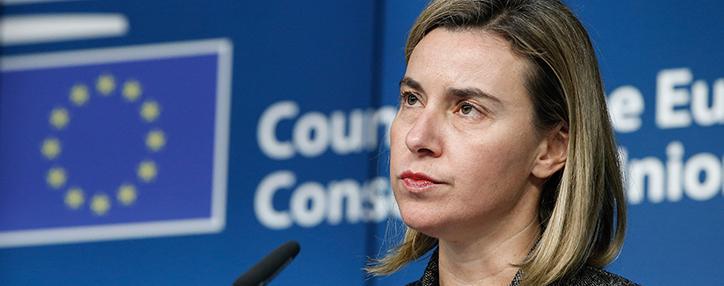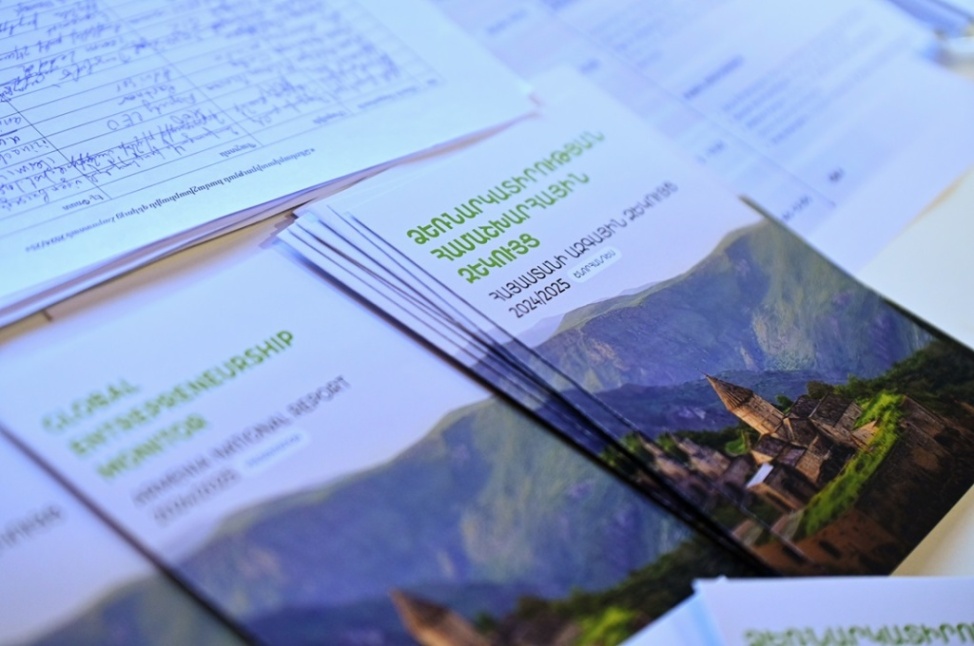Mogherini says all will benefit from settlement of Karabakh conflict
04.04.2019,
17:39
The settlement of the Nagorno-Karabakh conflict and a lasting peace will benefit all, High Representative for Foreign Affairs and Security Policy of the European Commission Federica Mogherini said.

YEREVAN, April 4. /ARKA/. The settlement of the Nagorno-Karabakh conflict and a lasting peace will benefit all, High Representative for Foreign Affairs and Security Policy of the European Commission Federica Mogherini said.
Mogherini made the remarks during a press-conference following a meeting of the EU-Azerbaijan- Cooperation Council in Brussels.
“Just last week we witnessed a positive meeting of Azerbaijani and Armenian leaders under the auspices of the OSCE Minsk Group co-chairs,” she said. “Increased communications at high level and significant decrease in ceasefire violations give us some hope that the process can move forward and that both countries would follow up on their commitments and into negotiations without preconditions.”
“All would benefit from lasting peace, not only Azerbaijan and Armenian citizens, but also beyond, because lasting peace would help to enable the entire region to fulfill its potential,” Mogherini said.
Following a last week meeting with Azerbaijani President Ilham Aliyev in Vienna, Austria, Armenian Prime Minister Nikol Pashinyan said his assessment of the meeting was positive.
‘It is important that after the meeting there is no need to look for winners and losers. If we want to achieve a settlement of the problem, this approach should become the logic of the negotiations. I think this is a new approach that we bring to the negotiation process,” Pashinyan said in the post.
The Nagorno-Karabakh conflict erupted into armed clashes after the collapse of the Soviet Union in the early 1990s as the predominantly Armenian-populated enclave of Azerbaijan sought to secede from Azerbaijan and declared its independence backed by a successful referendum.
On May 12, 1994, the Bishkek cease-fire agreement put an end to the military operations. A truce was brokered by Russia in 1994, although no permanent peace agreement has been signed. Since then, Nagorno-Karabakh and several adjacent regions have been under the control of Armenian forces of Karabakh. Nagorno-Karabakh is the longest-running post-Soviet era conflict and has continued to simmer despite the relative peace of the past two decades, with snipers causing tens of deaths a year.
On April 2, 2016, Azerbaijan launched military assaults along the entire perimeter of its contact line with Nagorno-Karabakh. Four days later a cease-fire was reached. -0---
Mogherini made the remarks during a press-conference following a meeting of the EU-Azerbaijan- Cooperation Council in Brussels.
“Just last week we witnessed a positive meeting of Azerbaijani and Armenian leaders under the auspices of the OSCE Minsk Group co-chairs,” she said. “Increased communications at high level and significant decrease in ceasefire violations give us some hope that the process can move forward and that both countries would follow up on their commitments and into negotiations without preconditions.”
“All would benefit from lasting peace, not only Azerbaijan and Armenian citizens, but also beyond, because lasting peace would help to enable the entire region to fulfill its potential,” Mogherini said.
Following a last week meeting with Azerbaijani President Ilham Aliyev in Vienna, Austria, Armenian Prime Minister Nikol Pashinyan said his assessment of the meeting was positive.
‘It is important that after the meeting there is no need to look for winners and losers. If we want to achieve a settlement of the problem, this approach should become the logic of the negotiations. I think this is a new approach that we bring to the negotiation process,” Pashinyan said in the post.
The Nagorno-Karabakh conflict erupted into armed clashes after the collapse of the Soviet Union in the early 1990s as the predominantly Armenian-populated enclave of Azerbaijan sought to secede from Azerbaijan and declared its independence backed by a successful referendum.
On May 12, 1994, the Bishkek cease-fire agreement put an end to the military operations. A truce was brokered by Russia in 1994, although no permanent peace agreement has been signed. Since then, Nagorno-Karabakh and several adjacent regions have been under the control of Armenian forces of Karabakh. Nagorno-Karabakh is the longest-running post-Soviet era conflict and has continued to simmer despite the relative peace of the past two decades, with snipers causing tens of deaths a year.
On April 2, 2016, Azerbaijan launched military assaults along the entire perimeter of its contact line with Nagorno-Karabakh. Four days later a cease-fire was reached. -0---



